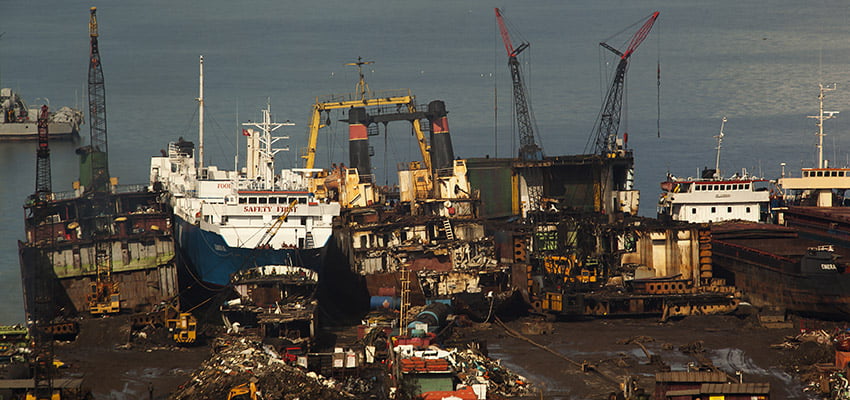“A TOOL for sharing information on ship recycling” is how a new initiative aimed at encouraging responsible ship recycling has been hailed.
The Ship Recycling Transparency Initiative online platform has been driven by industry and international not-for-profit group the Sustainable Shipping Initiative.
In a joint statement, proponents said the platform came nine months after a group of shipping companies announced plans to use transparency to bring about responsible ship recycling.
According to the joint statement, despite the risks associated with ship recycling there is no global regulation currently in force.
The SRTI is an online platform that shipping companies use to disclose information on ship recycling, with the information then “allowed to tell its own story”.
The SRTI brings together shipowners, investors, banks, insurers, cargo owners and other key stakeholders.
Founding signatories include The China Navigation Company, Hapag-Lloyd AG, A.P. Moeller-Maersk, NORDEN, Stolt Tankers and Wallenius Wilhelmsen; financial stakeholders GES, Nykredit and Standard Chartered Bank; classification society Lloyd’s Register; and sustainability non-profit Forum for the Future.
“We are really proud to be launching the SRTI site this week. At the SSI we see responsible ship recycling as a critical issue that needs to be addressed through smart interventions like increasing transparency,” said SSI co-chair Stephanie Draper.
“The SRTI is an opportunity for shipowners, cargo owners, investors and others to collectively demand transparency and through that better standards. We think that the industry can lead by working across the supply chain to change itself and it is great to be shaping this positive example of that.”
SSI executive director Andrew Stephens said the SRTI was unique in that it telling a positive story, “shining a light on what is actually possible in terms of responsible ship recycling”.
“We’ve seen what transparency has done in other sectors, in some cases prompting immediate and transformative change,” Mr Stephens said.

